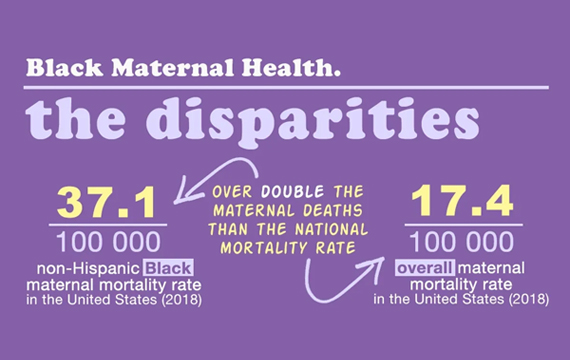 As we delve into Women’s History Month, it’s paramount to shine a light on the strides women have made in the health sector, standing on the shoulders of giants like Florence Nightingale and Madame Curie. Yet, despite these monumental achievements, the journey towards equity in women’s health remains fraught with disparities and unique challenges, particularly for women of color. This narrative unravels the stark realities women face in healthcare, underscoring the imperative for a more inclusive and equitable health system.
As we delve into Women’s History Month, it’s paramount to shine a light on the strides women have made in the health sector, standing on the shoulders of giants like Florence Nightingale and Madame Curie. Yet, despite these monumental achievements, the journey towards equity in women’s health remains fraught with disparities and unique challenges, particularly for women of color. This narrative unravels the stark realities women face in healthcare, underscoring the imperative for a more inclusive and equitable health system.
Historically, women have been trailblazers in health, transforming their roles from midwives and nurses to doctors and public health advocates. However, the accolades and progress do not fully mask the underlying issues. Women, especially those of color, continue to face a disproportionate burden of disease and health challenges. From higher risks of stroke to the prevalence of female-specific diseases, the health landscape for women is riddled with inequities. The Society for Women’s Health Research highlights that 16% of women report their health as fair or poor, with these numbers alarmingly higher among women of color. Moreover, conditions like Alzheimer’s, osteoporosis, and cardiovascular diseases disproportionately affect women, further exacerbated by socioeconomic factors and racial discrimination.
The gender health gap is not just a women’s issue; it’s a societal one with far-reaching economic implications. A report from the World Economic Forum and the McKinsey Health Institute, titled ‘Closing the Women’s Health Gap: A $1 Trillion Opportunity to Improve Lives and Economies,’ argues forcefully for the economic and societal benefits of addressing women’s health disparities. It reveals that despite women living longer, they spend a significant portion of their lives in poor health, which in turn impacts economic productivity and societal prosperity. Initiatives in countries like India, which have made strides in improving access to sanitation and health screenings for women, showcase the potential for policy and societal shifts to make meaningful impacts.
While the disparities in women’s health are daunting, the path to equity lies in a sustained commitment to research, education, and activism. The misdiagnosis and dismissal of women’s health conditions, such as endometriosis, underscore the urgent need for more resources and funding dedicated to understanding and treating female-specific diseases. Endometriosis, affecting approximately 176 million women worldwide, epitomizes the challenges in bridging the gender health gap, with an alarming average of 8 years for a correct diagnosis. Furthermore, the gender health gap in emergency care and pain management further illustrates the systemic biases and stereotypes that pervade healthcare, adversely affecting women’s health outcomes.
The narrative of women’s health is one of resilience and perseverance. As we celebrate Women’s History Month, let us also recommit to the ongoing struggle for health equity. By advancing research, fostering education, and championing activism, we can build a more equitable future for all women. The journey towards equity in women’s health is not just a commemoration of past achievements but a clarion call for future action.